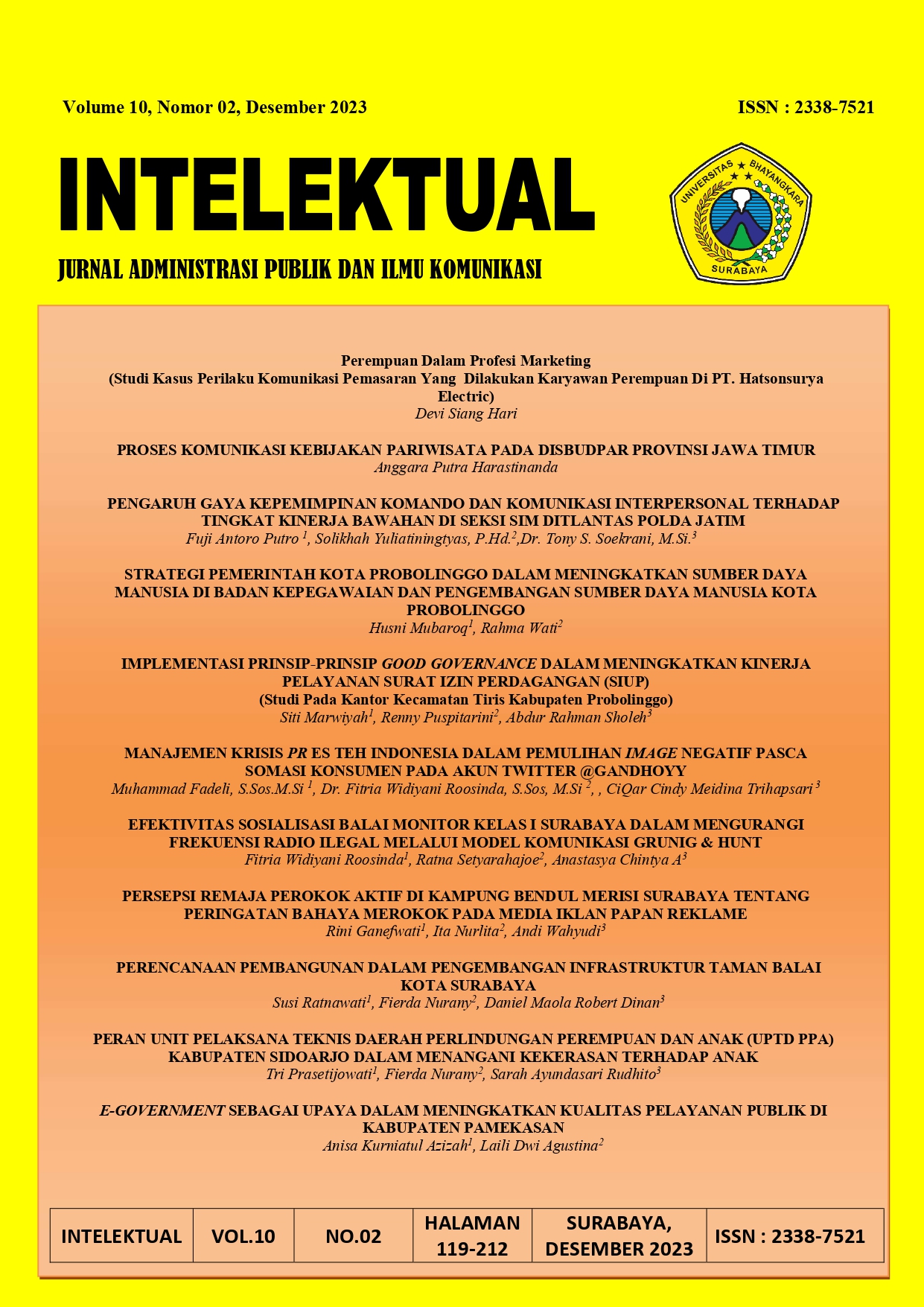EFEKTIVITAS SOSIALISASI BALAI MONITOR KELAS I SURABAYA DALAM MENGURANGI FREKUENSI RADIO ILEGAL MELALUI MODEL KOMUNIKASI GRUNIG & HUNT
Main Article Content
Abstract
In fact, the ability of the government to socialize illegal frequency users is still lacking. Therefore, the Surabaya Class I Monitoring Center was presented to carry out and apply the Grunig & Hunt communication model in reducing these problems. The presence of the Surabaya Class I Monitoring Center should be able to have an effect on reducing the use of unlicensed (Illegal) frequencies. This study aims to determine the effectiveness of implementing the Grunig & Hunt communication model in reducing illegal radio frequencies. The research method used is using qualitative research methods. The results of this study indicate that the implementation of the Grunig & Hunt communication model has been partially achieved. However, there are a number of things that must be considered because they are not optimal in implementing them. Among other things, (1) The targeting of illegal frequency users and the public has been right on target, but many have not been reached by the community itself. (2) socialization so far has been running quite effectively. (3) the achievement of objectives has not been achieved as it should be because there are still several reports of illegal frequency use received by the Surabaya Class I Monitoring Center. (4) monitoring there are a number of things that must be corrected because they are not yet effective enough in monitoring
Article Details

This work is licensed under a Creative Commons Attribution 4.0 International License.
Authors who publish with Intelektual: Jurnal Administrasi Publik dan Ilmu Komunikasi agree to the following terms:
- The author retains copyright licensed under Creative Commons Attribution-NonCommercial 4.0 (CC BY-NC 4.0), which allows others to remix, adapt, and expand on the author's work non-commercially, and even if someone else's new work must also acknowledge the author and is non-commercial, they do not need to license their derivative works on the same terms.
- Authors are permitted and encouraged to post their work online (e.g., in institutional repositories or on their websites) before and during the submission process, as this can lead to productive exchange, as well as earlier and greater citation of the published work ( See Impact of Open Access). Authors can archive preprints and postprints or publisher/PDF versions.

